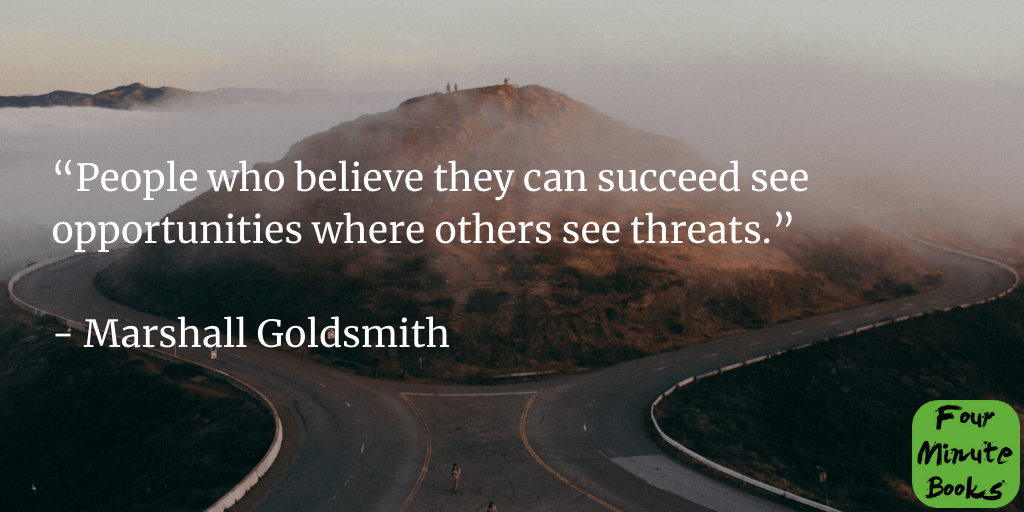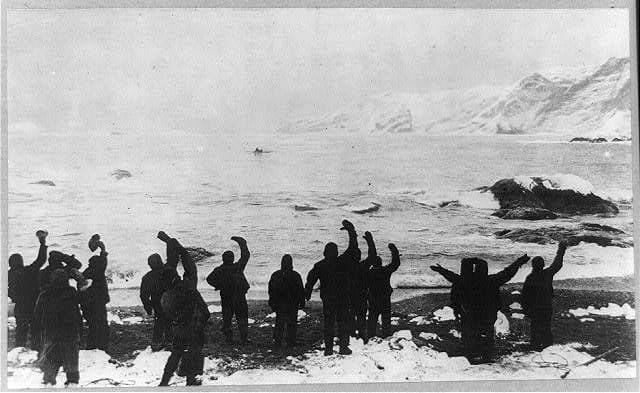Leadership Qualities Every New Supervisor Needs

I know where you are at, you are excited, you want to do a good job, and you are curious what character traits and skills are required in your new role. You don't feel any different. You may question whether you have what it takes. Yes, you do; that's why you are reading this blog.
In last week's post we discussed how the first step to leading others is leading yourself first. In that post we discussed how leading yourself manifests in three primary ways: emotional regulation, self-awareness, and setting the example. Mastering your self in these three areas is crucial in setting the foundation for your leadership journey. We also provided some actionable steps to get you started.
However, if you are like most of us, you are likely curious about what leadership qualities you need and what skills are required to be a successful leader. You likely, also want to amass them as quickly as possible, like a kid at an Easter-egg hunt. In your search you will find numerous websites and lists available discussing what character traits and leadership qualities leaders need to be successful. Websites like: Harvard Business Review, Center for Creative Leadership and Our Lady of the Lake University blog are good resources to identify those qualities. However, how do you develop them? How do we move beyond knowing them in our head, to feeling them in our heart and behaving in the desired manner?
This week we will focus on the key leadership characteristic: Curiosity
- We will highlight the key problem you face as a new supervisor,
- Explore how our past experiences lead to biases and potentially suboptimal decisions from some books that impacted my thinking, and
- Discuss what practical steps you can take to protect you from these missteps on your leadership journey.
The Problem: Your Experience is not Enough
That's right, your experience is not enough to make you a great leader. Certainly, it was your experience and your performance that informed your decision-making and high achievement leading to your promotion. However, your role as a leader requires a different skillset, one of the reasons you came to this website.
It is perhaps quite a paradox that you are recognized for your experience, but that experience is insufficient for the challenges of the future.
Good judgment comes from experience, and a lot of that comes from bad judgment. ~Will Rogers
The Key Quality: Curiosity for Lifelong Learning
In today's rapidly evolving business landscape, new leaders must embrace developing the leadership quality of curiosity to navigate the complexities and uncertainties of their roles effectively. This disposition is crucial not only for personal and professional growth but also for steering organizations through continuous change.
Because of the internet, we have the greatest access to information that has ever existed and as a result our world is more interconnected and systematized. Yet, despite this our world still has mysteries, and can be characterized in various areas as uncertain, ambiguous, and/or complex.
Below we explore key insights from the works of Daniel Kahneman's Thinking, Fast and Slow, James Burke's The Day the Universe Changed, Marshall Goldsmith's What Got You Here Won't Get You There, James March's The Ambiguities of Experience, and David Epstein's Range, which highlight one's cognitive limitations, the importance of life-long learning, and how multidisciplinary approaches better prepare us for future challenges.
The Misleading Nature of Experience and Cognitive Biases
Our Minds Bias Toward Speed and Survival-Not Accuracy
Daniel Kahneman's Thinking, Fast and Slow is the exploration of the Nobel Prize winning psychologists work, explaining decision-making and judgement. He characterizes the human mind as having dual systems of thought: System 1 (fast, intuitive) and System 2 (slow, deliberate). For new leaders, understanding these systems is vital in recognizing how experience can both guide and mislead decision-making.
- System 1 operates automatically and quickly, often relying on heuristics (a rule of thumb or mental shortcut) and as a result can generate biases. While this system is essential for efficiency, it can lead to cognitive errors.
- System 2 involves conscious, effortful thinking, which is crucial for complex decision-making but is more taxing and slower.
Kahneman argues our mind's overreliance on System 1 can result in cognitive biases, such as overconfidence and anchoring. What's worse is that we may not even recognize we are doing it. For example, a manager might overestimate their ability to predict market trends based on past successes, leading to poor strategic decisions.
However, even though we may be engaged in conscious, effortful thinking; it is still System 1 which retrieves our stored knowledge making what we think is a System 2 operation susceptible to the anchoring or availability biases.
Kahneman writes, "What psychologists do believe is that all of us live much of our life guided by the impressions of System 1—and we often do not know the source of these impressions."

We Are What We Know
In The Day the Universe Changed, James Burke discusses how important discoveries in science and technology changed how people thought about and understood the world. The prevailing culture catalyzes major changes in our collective understanding and at other times inhibits it. Burke's historical exploration highlights the necessity of how changing environments require our reevaluation of established practices and beliefs.
To quote from one of my favorite books, Atlas Shrugged, "Contradictions do not exist. Whenever you think that you are facing a contradiction, check your premises. You will find that one of them is wrong."
By understanding that perceptions are subject to change with new information, leaders must remain open to new information and approaches and when faced with a contradiction--check their premises.
Two key points Burke makes applicable to the aspiring leader:
- Past Paradigms Shape our Current Conceptions: Leaders should recognize their current knowledge and experiences are shaped by past paradigms, which may no longer be relevant. This point is also echoed by Kahneman above.
- Embrace Change: Embracing change and fostering a culture of curiosity can help leaders adapt to new paradigms effectively.
In order to achieve this overall view we develop explanatory theories which will give structure to natural phenomena: we classify nature into a coherent system which appears to do what we say it does. This view of the universe permeates all aspects of our life. All communities in all places at all times manifest their own view of reality in what they do. The entire culture reflects the contemporary model of reality. We are what we know. And when the body of knowledge changes, so do we." pg 7
Navigating Ambiguities and the Need for Curiosity
James March's Framework
James March's The Ambiguities of Experience highlights the inherent complexities and uncertainties in the world, emphasizing the duality of experience as one of the best teachers, but experience alone is insufficient for effective decision-making. March highlights how it isn't just the individual but also the organizational culture and larger societal culture that influence our interpretation of experiences, which reinforces Burke's work studying major historical and scientific advancements.
March argues that the ambiguity of experience requires leaders to cultivate curiosity and establish safeguards against their own potential errors.
March's key points;
- Interpretation: What lessons we learn from experiences are highly dependent on how we interpret them. This manifests itself when we have an experience and interpret it one way in the moment, but derive different lessons from it in the future. Also, no two individuals may experience an event the same way and their backgrounds will play a significant role in how they interpret the event
- Wrong Lessons: Similar to the problem of interpretation above, we can derive the wrong lessons from the experiences we have. If someone is always effective using power and threats as a default compliance mechanism, they may find their utility less effective when in a different work environment with employees who do not respond well to their use.
- Recency bias: Just as Daniel Kahneman pointed out in Thinking Fast, Thinking Slow, humans tend to overweight the value of our recent experiences. We can see this in some of the ways we discount older books or research, or even as a caution in our financial investments when we are warned that past performance is not indicative of future behavior.
David Epstein's Multidisciplinary Approach
David Epstein's book Range was one of the most stimulating books I read last year. In it, Epstein highlights how a multidisciplinary approach enhances problem-solving and innovation. Epstein argues that specialists, while highly skilled in a narrow field, may lack the broader perspective needed to navigate complex, interconnected problems.
Key concepts from Epstein's work are:
- Breadth of Knowledge: Leaders should develop a range of skills and knowledge across various domains to better understand and address the multifaceted challenges they face.
- Interdisciplinary Thinking: Encouraging teams to adopt interdisciplinary approaches can lead to more innovative solutions and better strategic outcomes.
By cultivating a broad knowledge base, leaders can draw connections between seemingly unrelated fields, fostering creativity and adaptability.
Practical Steps for Lifelong Learning
The best leaders are lifelong learners and curiosity is the cornerstone of lifelong learning. It drives leaders to seek new information, question their assumptions, and remain open to new ideas and perspectives.
So, what are some practical steps you can take to overcome the limitations of your experience, improve your decision making, and guard against your biases?
- Asking Questions: Leaders should regularly ask questions that highlight uncertainty and challenge the status quo. This practice not only promotes deeper understanding but also encourages a culture of continuous improvement within the organization. A simple way you can do this is to highlight to your team in your routine staff meeting that you want challenging views. Designate someone that day to be the Devil's advocate to challenge the group. This not only gives them permission to act that way in the group, but it also creates an expectation of thinking that carries on from week to week.
You no longer are paid for the questions you answer. You are paid for the questions you ask!
- Embracing Uncertainty: Recognizing that uncertainty is a natural part of the decision-making process can help leaders remain flexible and responsive to change. This does not mean simply acknowledging that uncertainty exists and moving along. Something must be done about it. As Gregory Treverton highlighted in the link above about puzzles versus mysteries, some problems can be solved with more information. Sometimes there is not additional information to be had. As the leader, you need push your team to find out which. If no further information can be found or if there is not enough time, then the uncertainty needs to be managed by seeking to reduce risks. More on that in a later post.
- Continuous Improvement: Committing to ongoing learning and development ensures that leaders stay current with industry trends and emerging best practices. One of the best ways to do this is to read widely. It is not enough to read short tweets that make you feel good. You must put in the work to study many different, multi-disciplinary things around you. You will find that you will make connections and find patterns in the world that repeat.
President Harry Truman was a prolific reader and student of history his entire life. When interviewed about his presidency, he said that whenever he had a question to which he did not know the answer, he would refer to Plutarch's writings and nearly always find the answer to his question.
These practical actions create guardrails for decision-making and create mechanisms to question assumptions and premises for decisions. These practical steps reinforce the benefit of alternative perspectives, reflective practices, and fostering a culture where questioning is encouraged.
Summary
The greatest quality new leaders can develop is their curiosity and becoming a life-long learner. As I was told recently when I received a promotion, "You no longer are paid for the questions you answer. You are paid for the questions you ask!"
Therefore, as leaders, we must embrace lifelong learning to effectively navigate our changing environment. By understanding the limitations of experience and the influence of cognitive biases, leaders can make more informed decisions.
Through the cultivation of our curiosity, engaging in multidisciplinary learning, and by checking our premises and seeking new information beyond our experiences, we create safeguards to help us continue to succeed in our new roles. After all, good leadership is desperately needed in this complex and dynamic world.
If you like this post and want to keep getting helpful content like this in your inbox, subscribe to our newsletter to get The Gryphon directly in your inbox below.
Additional Resources






Member discussion